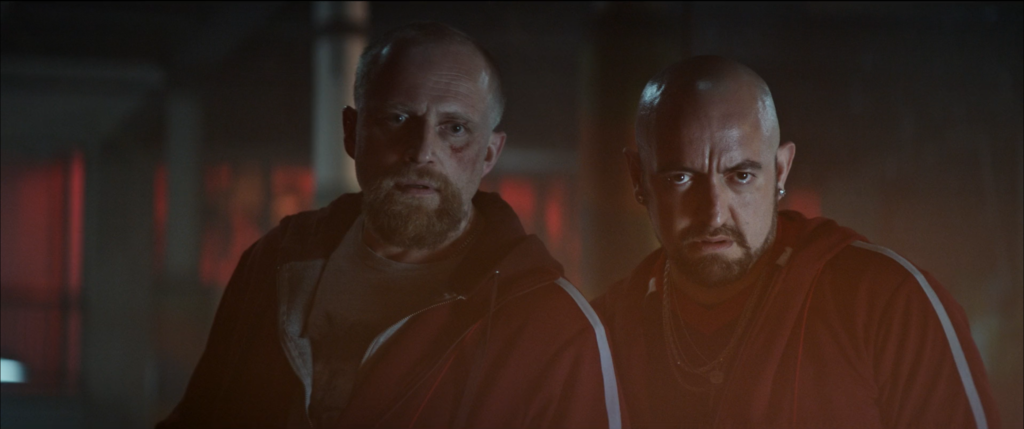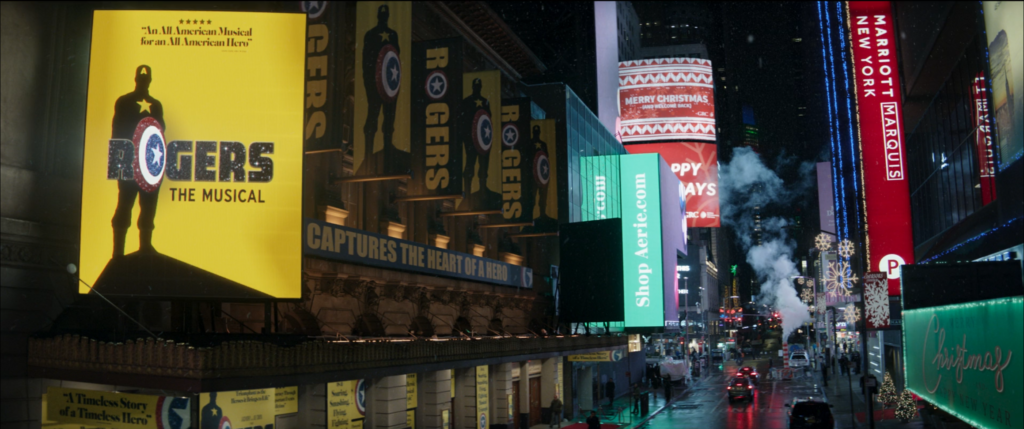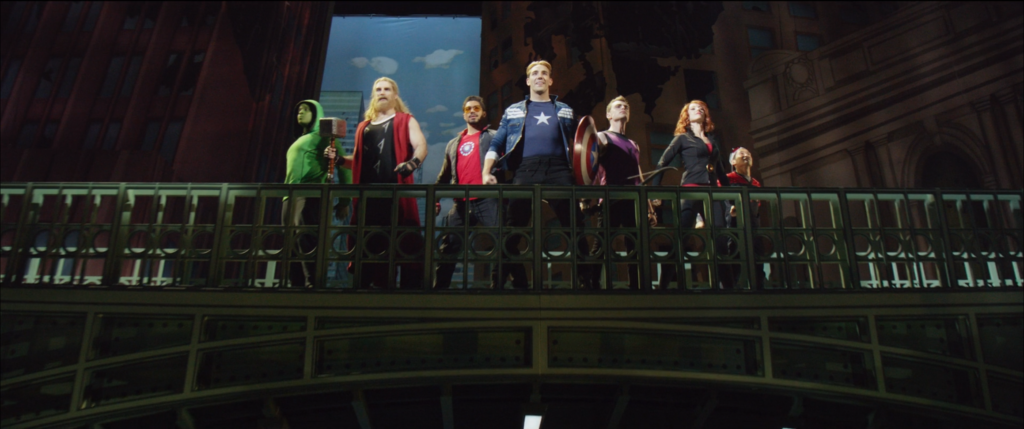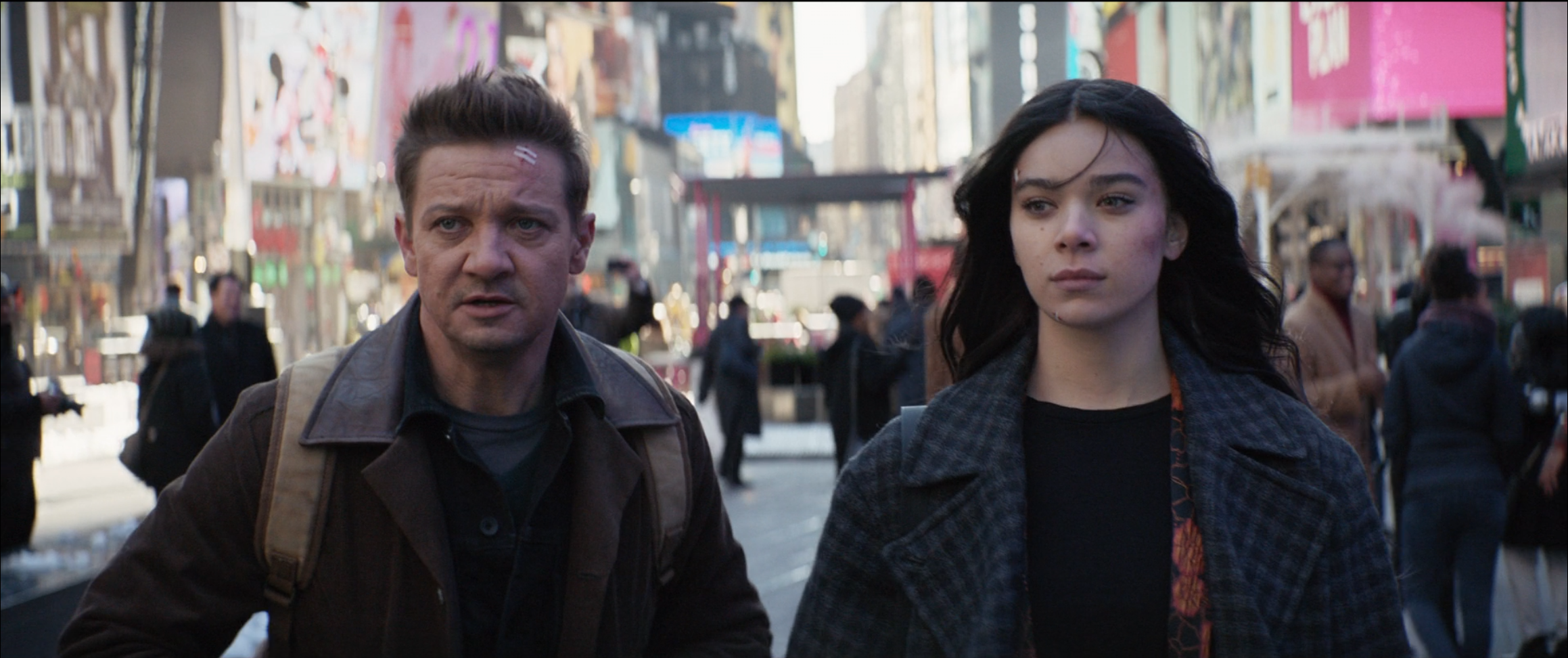I’m a weird target for the Marvel TV shows. I don’t watch the movies. In fact, I don’t think I’ve seen any of the movies since Disney/Marvel started making movies with the characters they hadn’t sold to Fox (X-Men, Fantastic Four) or Sony (Spider-Man). Well, I’ve seen Deadpool, but that one is off by itself. Back in the early 2000s I saw the X-Men and Spider-Man movies and I came to the conclusion that movies were the absolute worst way to tell these stories. In modern comic book storytelling a story arc is usually 5-6 issues and a story may be made of many arcs. I was just ahead of my time because Netflix and Amazon didn’t exist yet. HBO wasn’t making epic stories like Game of Thrones.
Interestingly, so far the TV shows I’ve seen WandaVision and Hawkeye don’t really require me to really understand what’s gone on in the MCU. Between what I know from the comics and TV show flashbacks I was able to understand and emotionally respond to WandaVision without any problems. I haven’t yet seen Falcon and Winter Soldier or Loki because I don’t really care about those characters. And I mostly don’t care about Hawkeye either, but I LOVED the Matt Fraction and David Aja Hawkeye book. I wrote about it here and contributor Kari Woodrow wrote about the art here. I was definitely looking forward to seeing how it was adapted to the MCU.
A lot of the things I love are here – Pizza Dog, New York City, The Tracksuit Mafia. But a few things have to be different because of the Hawkeye we’ve got – the MCU Hawkeye. What we lose, therefore, is the playboy Hawkeye that drives a good portion of the Fraction plot. Instead we have a Hawkeye that has 3 kids, apparently. However, in seeing his interactions with his kids, MCU Marvel makes the point that I’ve been trying to make about Marvel Comic Universe for nearly a decade now: they need to let the heroes grow and age. It was a mistake to erase Peter Parker’s marriage. A Spider-Man who also has a wife and kids to worry about is a very different Spider-Man. It’s why I loved the compromise of sorts that came from the X-Men books when the original X-Men were running Xavier’s school. They used to be the kids there, now they were the adults and the teachers. While it was annoying many (most? all?) of them were not allowed to have kids (unless they came from the future – both of Scott Summers’ kids), it did lead to a different dynamic than the comic had in the 60s and 70s.

In fact, a lot of Hawkeye in just the first two episodes has done a lot to ground the universe. While we don’t have the Young Avengers or West Coast Avengers for Kate Bishop, we have something almost better. She decides to become “female Hawkeye” after a superhero fight destroys her house and kills her father. (Supposedly. It was offscreen – so who knows?) It’s not that Marvel has never considered the civilians in the books, but in most issues (and the early movies) we seem to have a sense of destruction porn that only works if you never stop and think about the civilians getting killed (or just having tons of property destruction) because of superheroes. Our first scene with Clint Barton in the present day has him attending a broadway show of Rogers, the Musical a musical recounting the events of prior movies. Of course that would exist! Of course when he went to the bathroom he would have someone asking for a selfie. (Why does everyone know who he is? Were the secret identities revealed in MCU’s Civil War as it was in the comics?) Also, he uses a hearing aid because of all the explosions always happening around him.

It’s been at least a decade since I got over my disappointment over adaptations. Most of the time (there are exceptions!) it’s not whether the book or movie was better. They are each their own thing working within their own limitations. (Incidentally, let me recommend Failure to Adapt, a podcast about book->movie adaptations that I absolutely adore) That said, there is a bit we lose in this adaptation due to the Hawkeye we’ve got in the MCU. The initial story arc of Fraction’s story involves Clint buying the apartment building he lives in so that his friends and neighbors don’t get kicked out. MCU Hawkeye doesn’t live in the city, he lives somewhere a flight away (he sends his kids to the airport in the second episode). It doesn’t make the current story automatically bad, it’s still in the setup phase. But instead it makes the plot kick off with Barton trying to get back his Ronin suit because he’s afraid whoever is caught with it will end up being killed by the Tracksuit Mafia. It’s a good motive, but it’s a totally different vibe. Kate also has a very different relationship with him. In the TV show, she’s the annoying kid (she’s 22, she’ll say a few times) trying to get the adults to take her skills seriously. The show probably sets her up for her own show or to appear in the movies. But in the books, she’s returning to a mentor as an equal. So, as has been the case with the MCU movies, it’s a grab-bag of things from the comics it’s based on (see Black Panther) and whatever purpose it needs to serve for the greater MCU.

That said, I did find the first two episodes entertaining (although my wife says the Tracksuit mafia are like cartoon Russians in how dumb they are) and the only criticism I have is that none of Kate and her mother’s conversations make sense. They feel like they both start and end abruptly with weird logic. The only way I’m able to make it work in my head at the moment is with the idea that perhaps the mother is in on whatever shady stuff is going on; because the alternative is that she has to carry the idiot ball for plot purposes, and that’s just lazy writing. I’ll carry on watching, but I’ll definitely be disappointed if they don’t find a way to recreate the naked jumping shot. (Just kidding, I know it’s a joke that works way better with comic book suspension of disbelief than live action; as well as with the comic book version of Hawkeye vs the MCU version)

The MCU Hawkeye was based largely on Ultimates Hawkeye who worked for SHIELD and had a family hidden away for their own safety. While Ultimates provided a lot of inspiration for the beginning of the entire MCU, Clint was more drawn from it than any character except Fury. At least from my perspective. Tony got some of his personality from Ultimates but was still mostly 616-ish. Cap got some of his backstory from Ultimates but was largely 616 at his core. Thor was not at all Ultimates–unless they are waiting to bring in his hippy phase. And Natasha and Bruce were pretty much complete opposites from their Ultimate Characters. It seems to me the further we go the more the movies embrace the 616 world and I think this version of Peter Parker is the closest to the comics.
Anyway, back to Hawkeye, Fraction and Aja’s Hawkeye comic came out after the Ultimate-based version of Hawkeye had already been established and it’s clear this show is trying to bend the character toward the immensely popular comic run. I think they are doing a pretty good job blending it into the situation they established previously. I don’t know how involved he is but I noticed Matt Fraction was listed as a producer.
The longer the MCU runs the more they are wholeheartedly embracing the comic story-telling in all its bizarre glory whether that is the over-the-top Tracksuit Mafia with their bros or the weird and wacky time travel and multiversal shenanigans on Loki complete with Frog Thor and what not. I’m loving the ride and continue to enjoy pointing at things and saying “I know what comic they got that from.”
I will leave you by answering this question for you: “Why does everyone know who he is? Were the secret identities revealed in MCU’s Civil War as it was in the comics?”
They never really had secret identities in the movies. At the end of Iron Man 1 Tony tells the world in a press conference “I am Iron Man.” It was actually an improv moment by Robert Downey Jr. and the people in charge of the MCU realized that this was their chance to do something different and a bit more streamlined so they ran with it. However, that being said, Spider-Man still has a secret identity and that is an issue he is having to deal with, but the others not so much. Civil War in the MCU was about still about superhero accountability, but not secret identities. Every Marvel Universe does things a bit differently after all.